This project is now in update mode. Check back regularly to see how things are progressing.
Detect, Treat, and Defeat Breast Cancer
Motivation
Each year, 200,000 Americans are diagnosed with breast cancer. Six to ten percent of these diagnoses are metastatic or stage 4 which is not considered survivable. A person dies from breast cancer every 15 min and 40,000 men and women die of this disease each year.
In your lifetime you will most likely be affected by breast cancer through a family member such as your mother, grandmother, aunt, sister, daughter, or friend being diagnosed with this disease. Many of the most aggressive breast cancers are attributed to women who have had children, creating a harrowing impact on families. The hereditary nature of this disease can affect generations to come. We are raising funds to use our unique research to help detect, treat, and defeat breast cancer so future generations of women can be saved from this terrible, prolific illness.
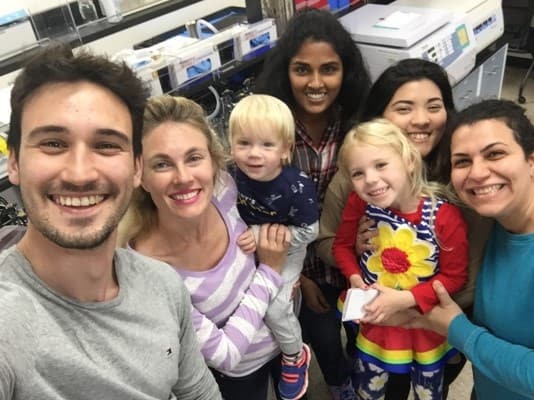
Our Unique Approach
The Rylander Cancer Engineering and Nanotheranostics Lab at The University of Texas at Austin has pioneered a revolutionary technology which will bring life-saving advances in diagnosis and therapeutics rapidly from the bench to bedside.
In partnership with clinicians at the UT M. D. Anderson Cancer Center we have developed a unique breast tumor representative device that enables fast track testing of potential new therapeutics and identification of new targets for better diagnosis and treatment in a rapid and repeatable manner. This platform technology dramatically decreases the time and expense needed for new therapies to be identified and tested, accelerating the time for patients to receive life-saving treatments.
No animals or human patients are needed with this screening method, preventing unwanted toxicity to patients already suffering and enabling refinement of treatments prior to any ethical concern with animal testing.
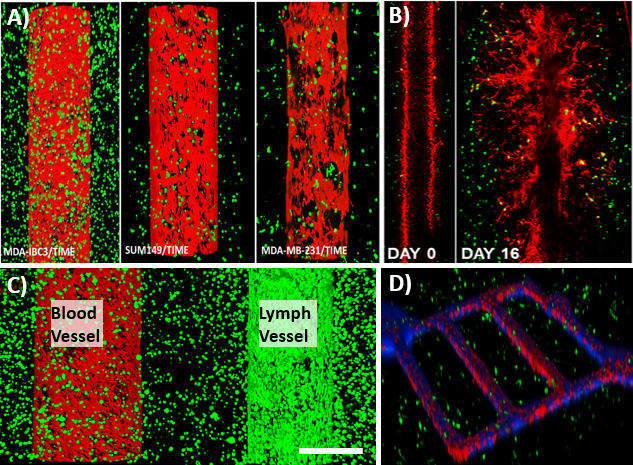
Unique Vascularized Breast Tumor on A Chip Platform for Rapid Development of Diagnostics and Therapeutics. A) Platforms representing different types of aggressive breast cancer consisting of breast cancer cells (green) cultured within a tissue matrix integrated with a blood vessel (red). This platform mimics the physiology of breast tumors and response to therapeutics. B) Typical blood vessel growth (red) for an aggressive breast tumor platform is shown as a function of time. Our platform will be used to measure the critical impact of therapeutics on a tumor's blood supply (blood vessel network). C) For advanced breast cancer we will use our platform to assess invasion into surrounding blood (red) and lymph vessels (green) and metastasis to other tissues (e.g. skin, bone, brain) and the capability of new detection methods to identify breast cancer earlier and treat metastasis. D) We can assess the transport of candidate diagnostics and therapeutics (blue) in our vascularized breast platform to enable better dosing and selection of treatments to minimize toxicity and maximize efficacy.
Novel Technology
First physiologically representative breast tumor on a chip mimicking tumor response and metastasis to surrounding lymphatics and organs.
-
Provides a high throughput, inexpensive, and precise platform for drug development and identification of markers for diagnosis and therapy. This enables rapid translation of life saving advances from the bench to bedside.
-
Eliminates the need for animal testing during initial stages of optimization of methods for detection and treatment. This prevents ethical concerns with animals and dramatically decreases expense for pharmaceutical development.
-
Significant refinements in detection and treatment can occur before testing in humans thereby diminishing toxicity and the likelihood of unsuccessful therapies affecting patients already suffering from this horrible disease
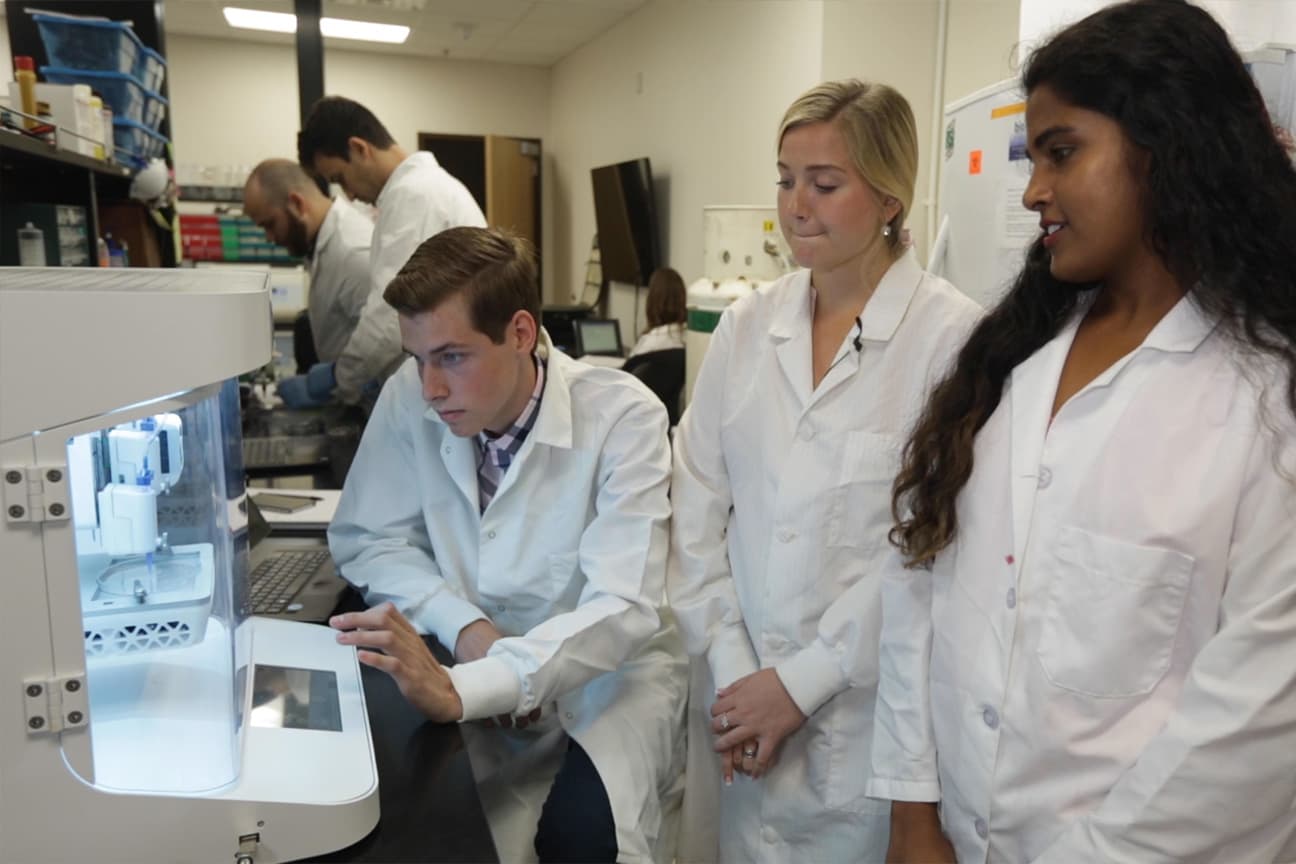
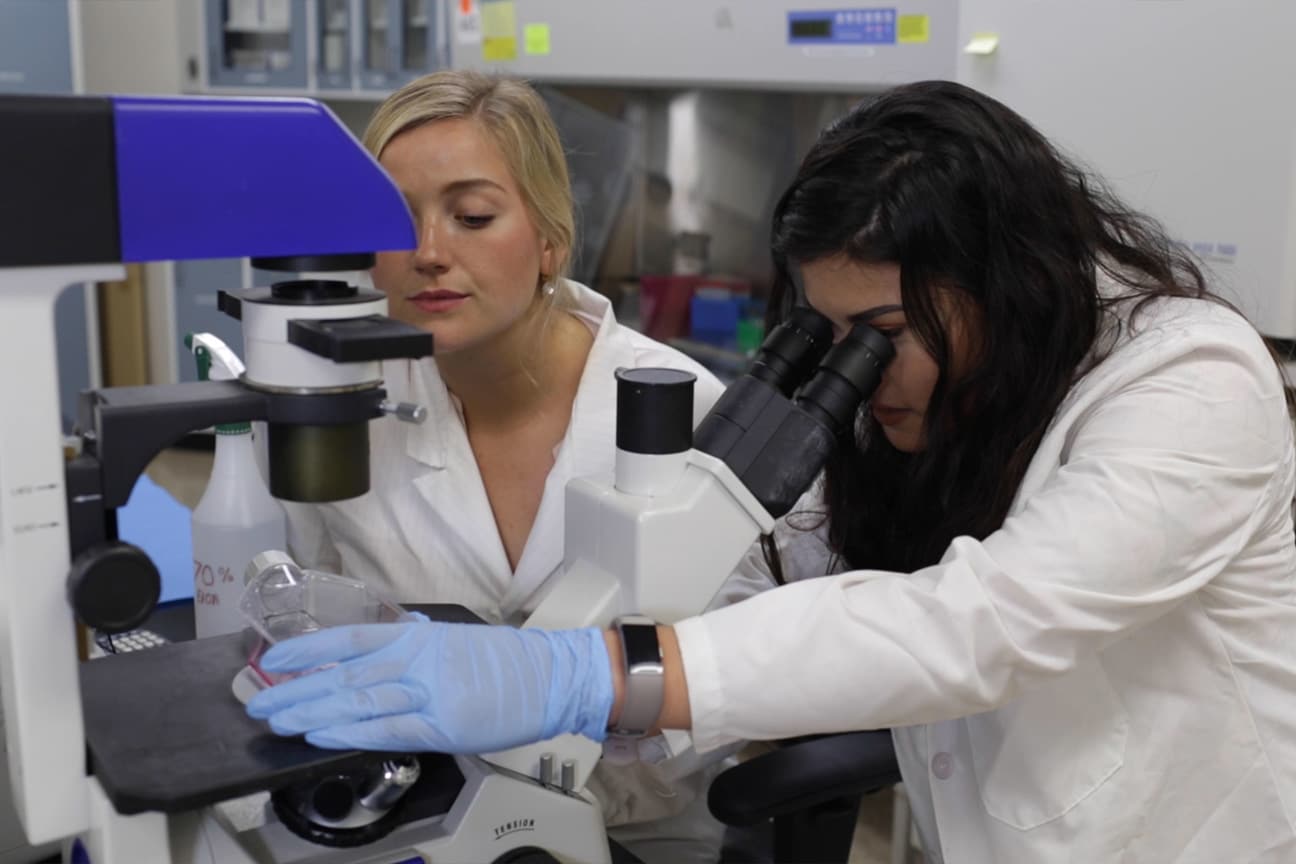
Why We Need Your Help
$25 - Will help us to purchase essential basic lab supplies to develop the platform.
$100 - Will support maintaining the models/platforms for testing chemo-drugs/nanoparticles.
$200 - Will help us to test existing drug/diagnostic particles for breast cancer.
$1000 - Will support us to model/analyze the transport and effect of the drug on the breast tumor model and confirm the outcomes with existing patients data.
$2000 - Will contribute to test novel therapeutics/drugs with the developed platforms.
$5000 - Will help us to model/analyze the transport and effect of novel drugs and determine appropriate drug doses for treatment plans and increase drugs efficacy in targeting breast cancer.
Meet Our Team
We are passionate about what we do,
We love learning and exploring,
We are persistent and we never give up,
We stay positive and happy,
We work hard and party harder,
We are a team of innovative scientists:
Marissa Nichole Rylander, Associate Professor
Neda Ghousifam, Research Associate
Manasa Gadde, Graduate Research Assistant
Kameel Isaac, Graduate Research Assistant
Alican Ozkan, Graduate Research Assistant
Sean Brocklehurst, Graduate Research Assistant
Brittany Sandoval, Undergraduate Research Assistant
Jacob Scheftel, Undergraduate Research Assistant
Taylor Holland, Undergraduate Research Assistant
Keely Meloche, Undergraduate Research Assistant
Nicholas Fuselier, Undergraduate Research Assistant
Angelika Kurpan, Undergraduate Research Assistant
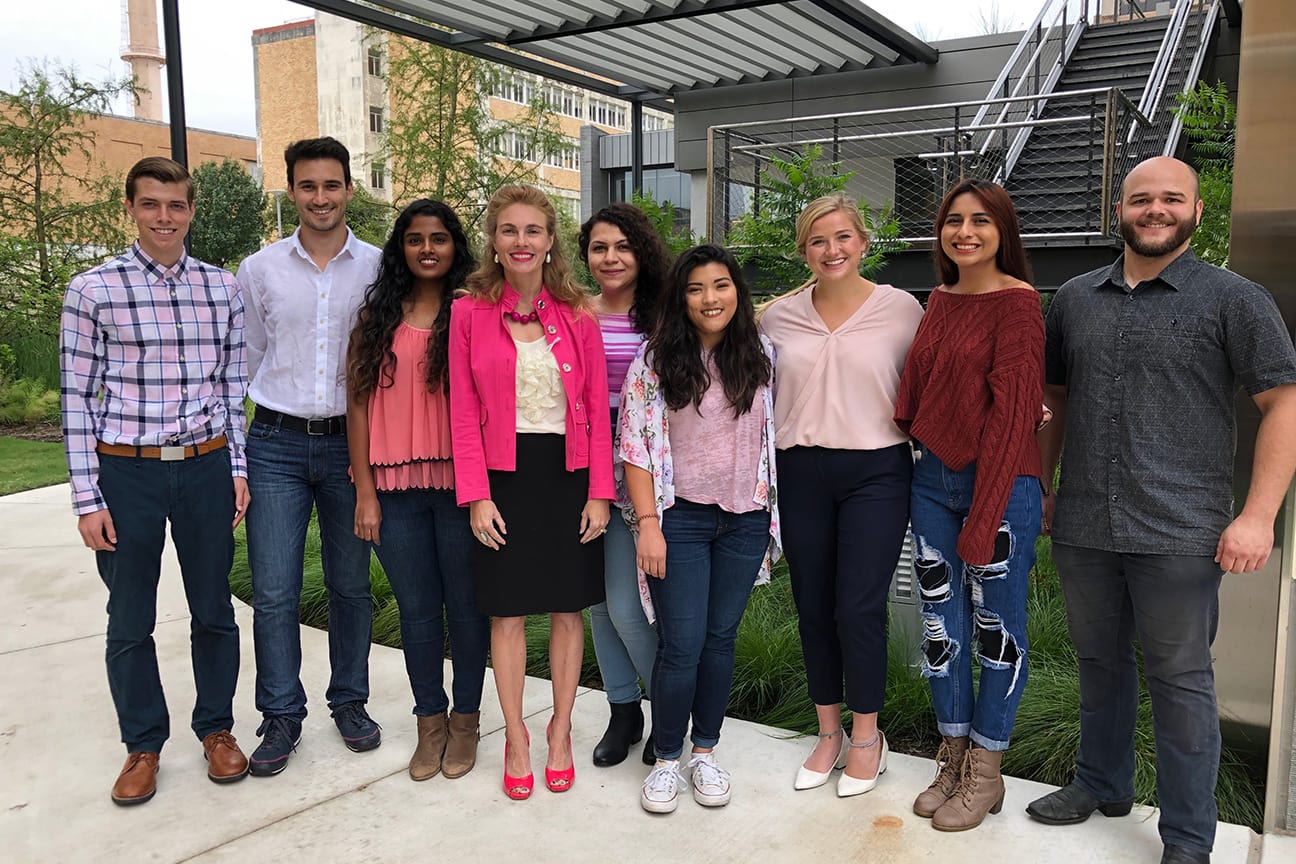
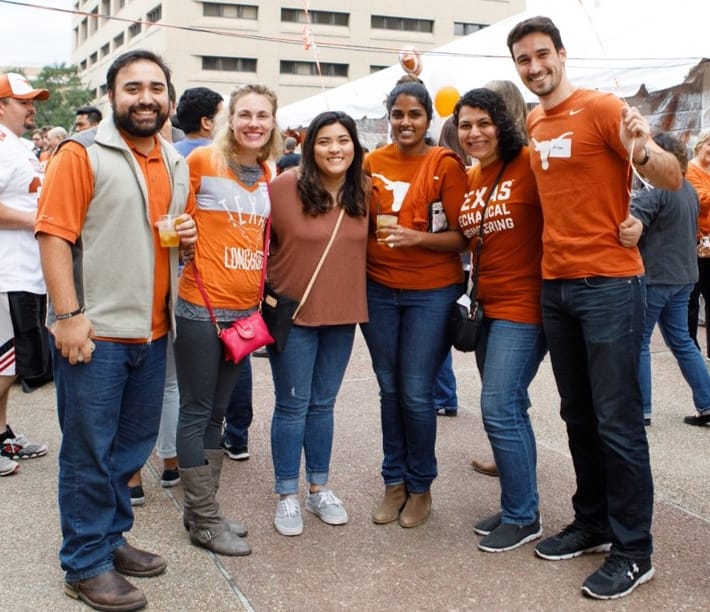
$25
Level 1
Create a single breast tumor platform for diagnostic and therapeutic testing
$500
Level 5
Compare efficacy of candidate drugs for a specific type of breast cancer
$1,000
Level 6
Determine optimal dosing of a candidate drug to minimize toxicity and maximize effectiveness
$5,000
Level 8
Optimize the delivery, dose, and selective targeting of a candidate drug or diagnostic
$10,000
Level 10
Optimize the delivery, dose, and selective targeting of a novel drug or diagnostic






